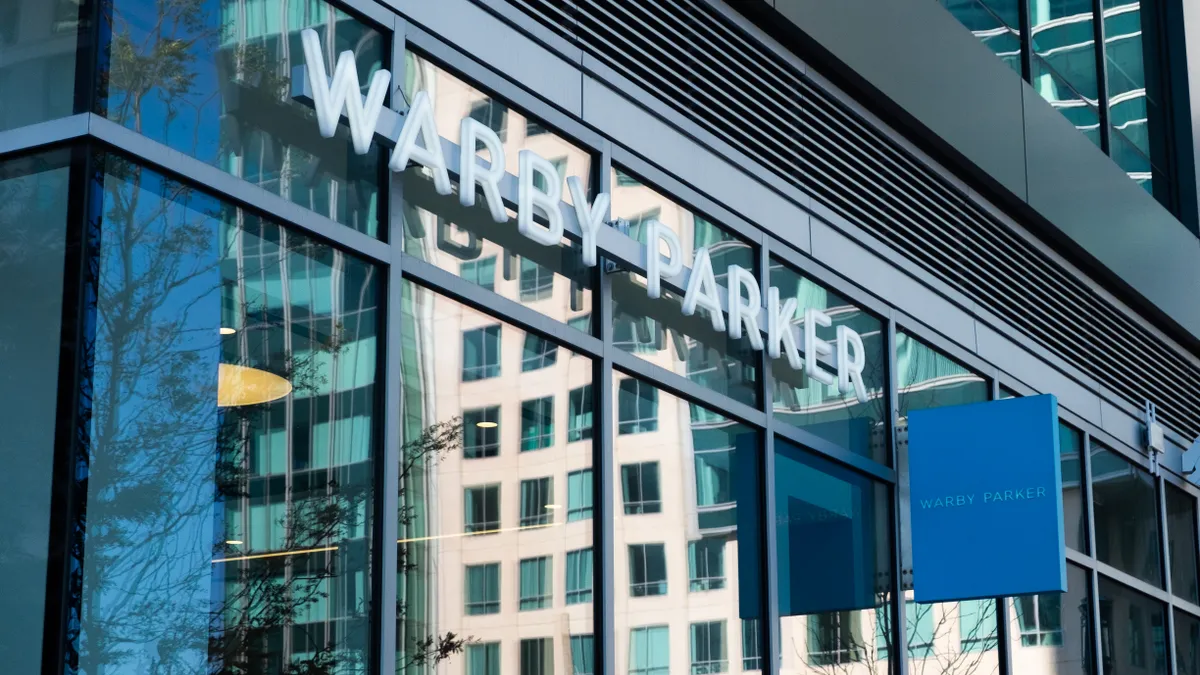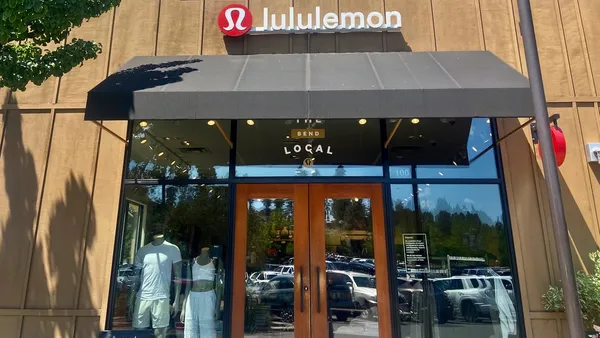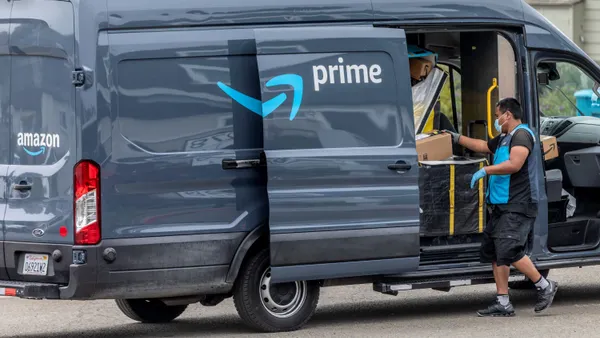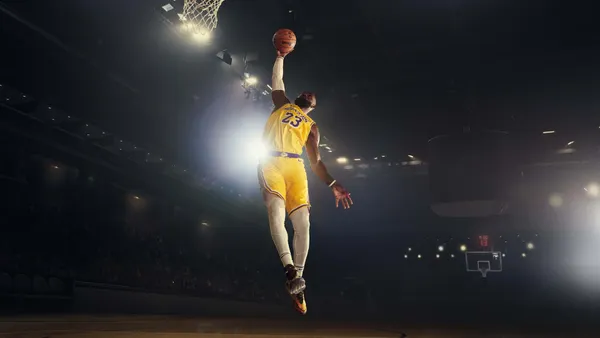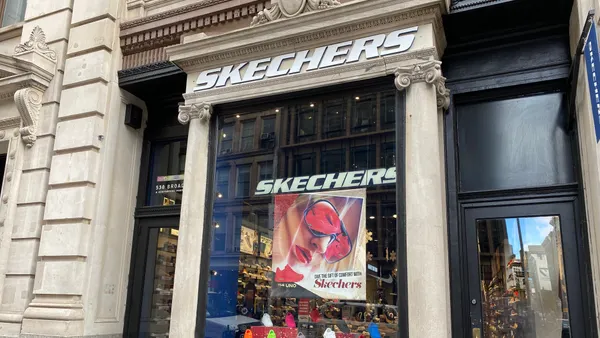Dive Brief:
- Online eyewear retailer 1-800 Contacts filed a lawsuit against Warby Parker in New York district court, claiming the direct-to-consumer brand infringed on its trademarks and deceived customers.
- In its complaint, 1-800 Contacts alleges Warby Parker bought advertisements tied to Google and other searches of the 1-800 Contacts brand, ads which route consumers to a page on Warby Parker's website that, according to the plaintiff, "mimics key elements of the 1-800 Contacts website."
- A Warby Parker spokesperson did not immediately reply to a request for comment.
Dive Insight:
For DTC brands and retailers, search ads have become a lynchpin for marketing strategies.
Google, together with Amazon, dominates product search. According to Google's own survey data, 59% of shoppers said they have used the tech giant's platform to research a purchase they planned to make online or in-store. (For strictly online purchases, the figure is 51%.)
For Google, it has been an extremely lucrative business, worth more than $100 billion in revenue to the company. It has also brought the company scrutiny from antitrust enforcers concerned about Google's power over the search and advertising markets.
Often brands compete to buy ads for specific general product searches. It is a way to get attention in a vast and crowded online environment. Search ads can also add up to be very expensive, according to analysts.
"Search is such a critical way that companies market themselves because … it is the only channel where the customer raises their hand and says, 'I am in the market for this product,'" Collin Colburn, senior analyst with Forrester, told Retail Dive earlier this year.
According to Colburn, some companies spend more than 50% of their digital ad budget on paid search. That includes spending on ads to "defend" their own brand terms.
Tying ad buying to competitors' brands is also a key strategy for digital marketers. For example, search for "L.L. Bean" online and you may find ads directing you to Lands End's e-commerce store in the search results.
1-800 Contacts' lawsuit was filed by a company trying to defend its brand online from such a strategy. The company said in its complaint that consumers often rely on searching its name online to find its online store. Key to its argument is the company's allegation that Warby Parker's landing page for the ads mimics its own website.
1-800 Contacts, which is owned by private equity firm KKR, argued in its complaint that Warby Parker's strategy "unfairly relies on the strength of 1-800 Contacts' trademarks by placing ads designed to confuse consumers searching for 1-800 Contacts by, among other things, directing these consumers to a deep linked Warby Parker landing webpage that deceptively and intentionally mimics the look and feel of 1-800 Contacts' website, including through use of a confusingly similar color scheme, layout, and discount offering, along with imagery evoking the 1800contacts.com website."
1-800 Contacts is seeking to block Warby Parker, a relatively new entrant in the online market for contact lenses, from using its name "in any way" that could confuse customers, including through search ads. The company also asked for damages, compensation for increased advertising costs "necessary to combat any public confusion caused by Warby Parker's infringement," any revenue Warby Parker made from the ads and other relief from the court.



